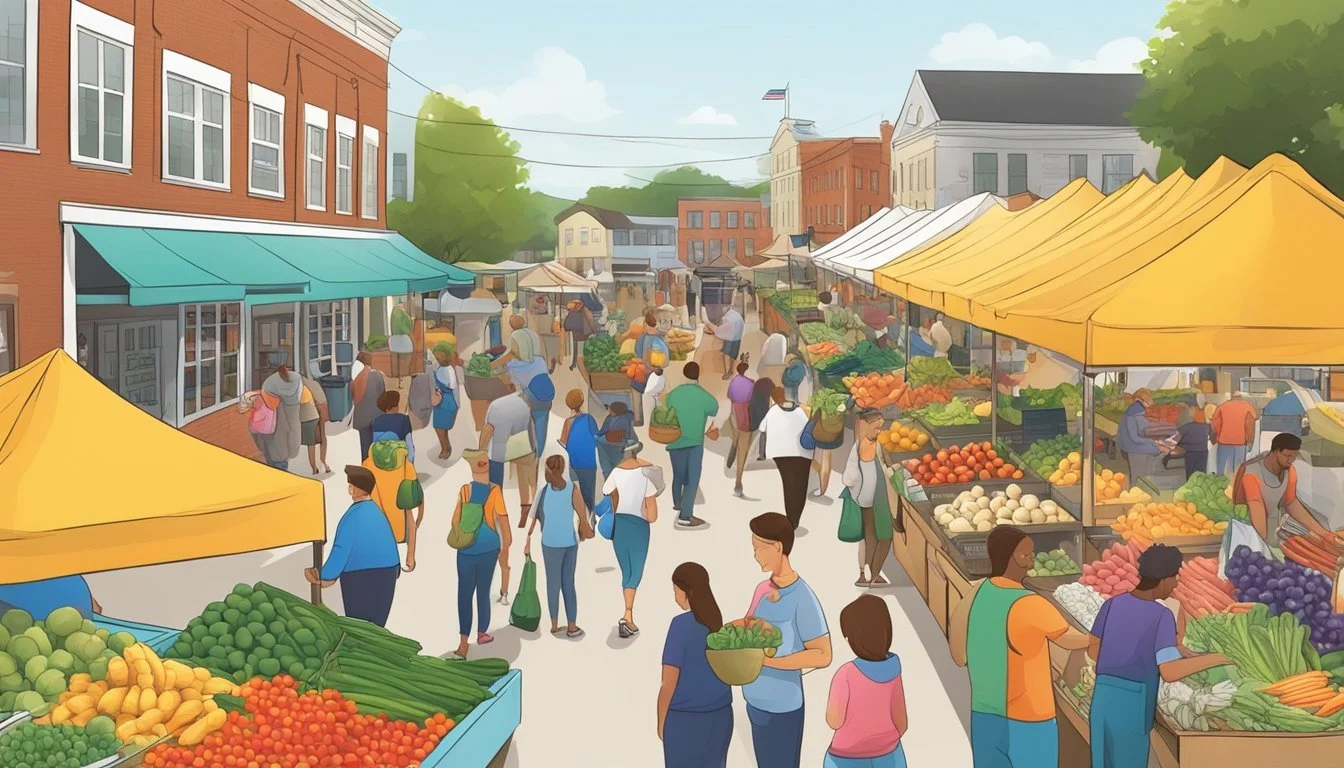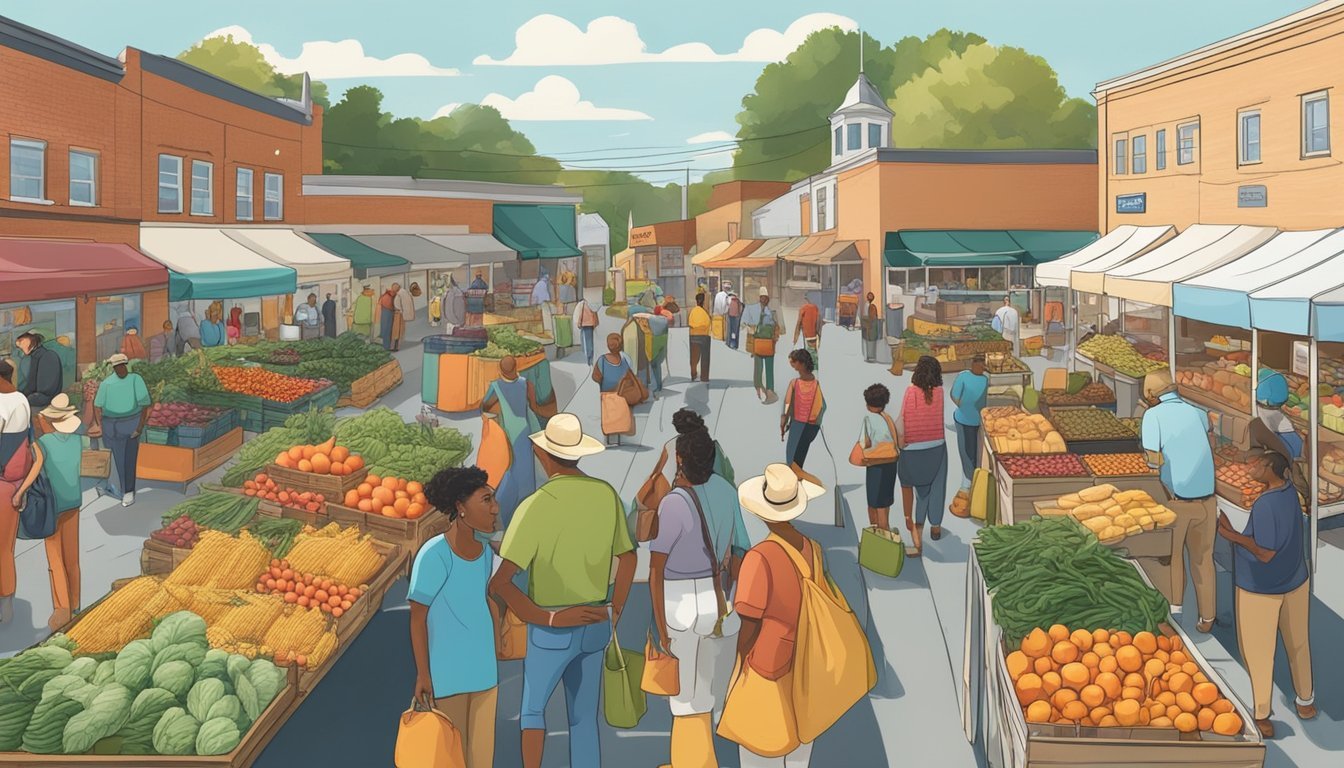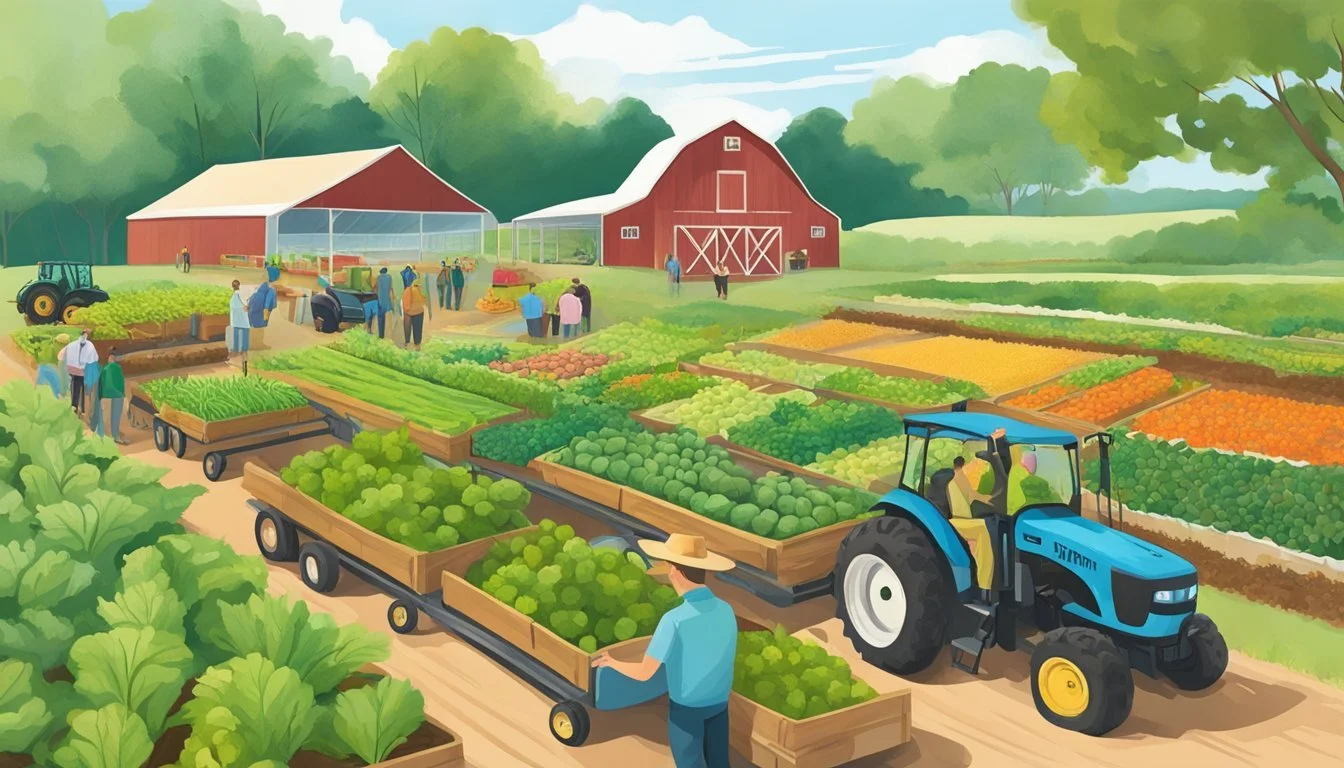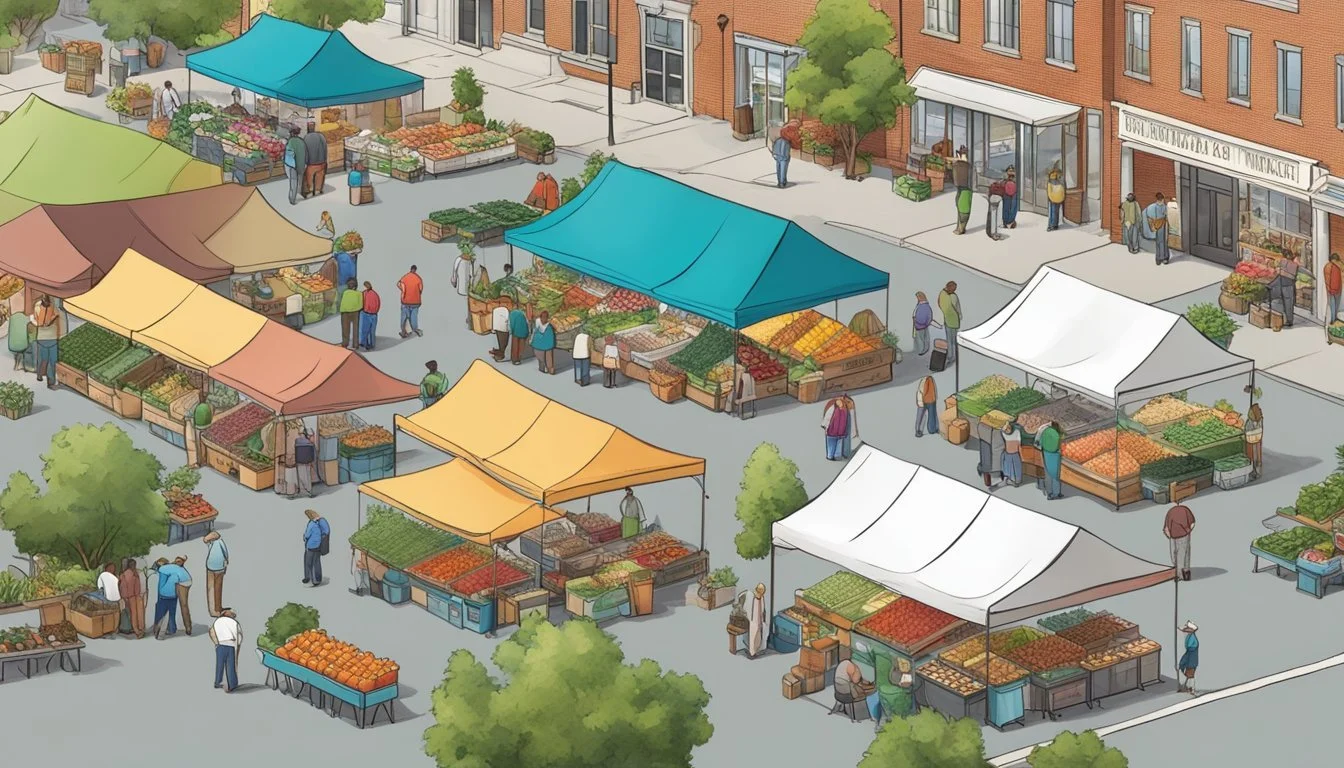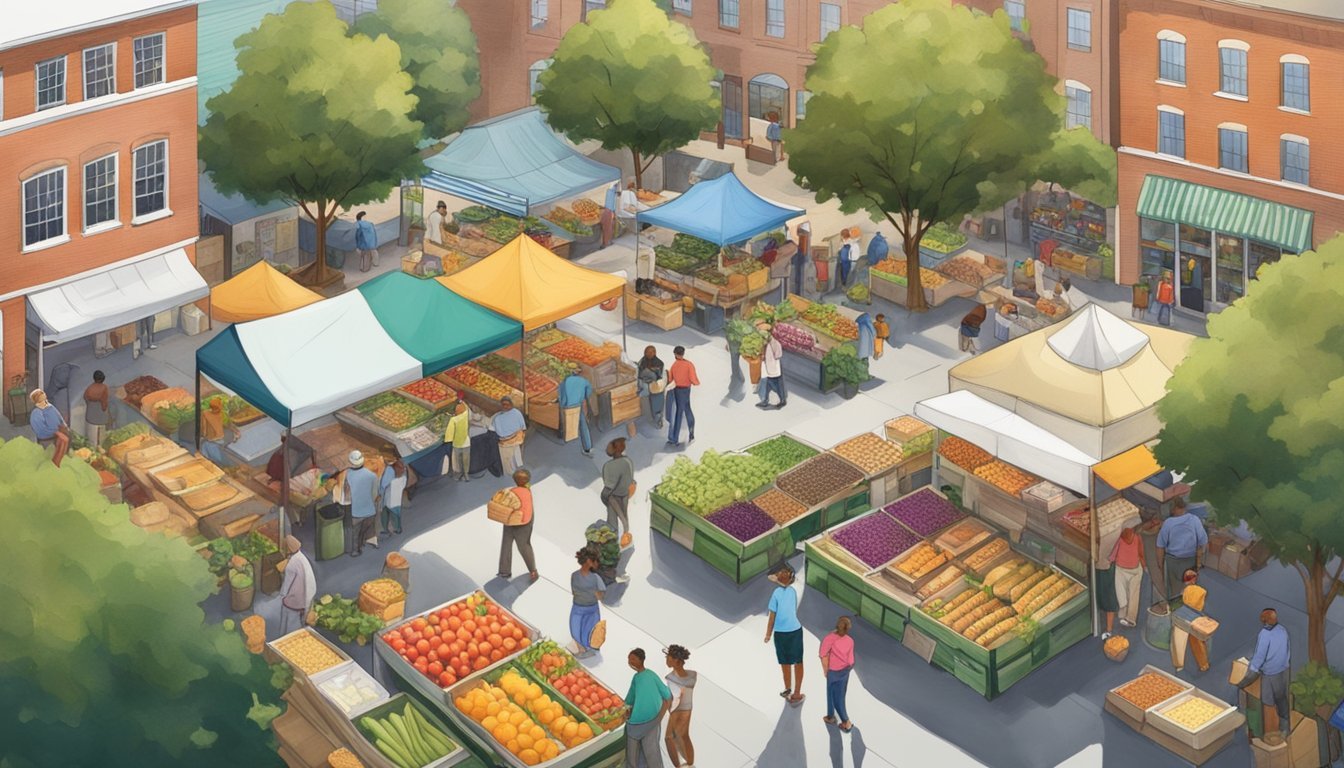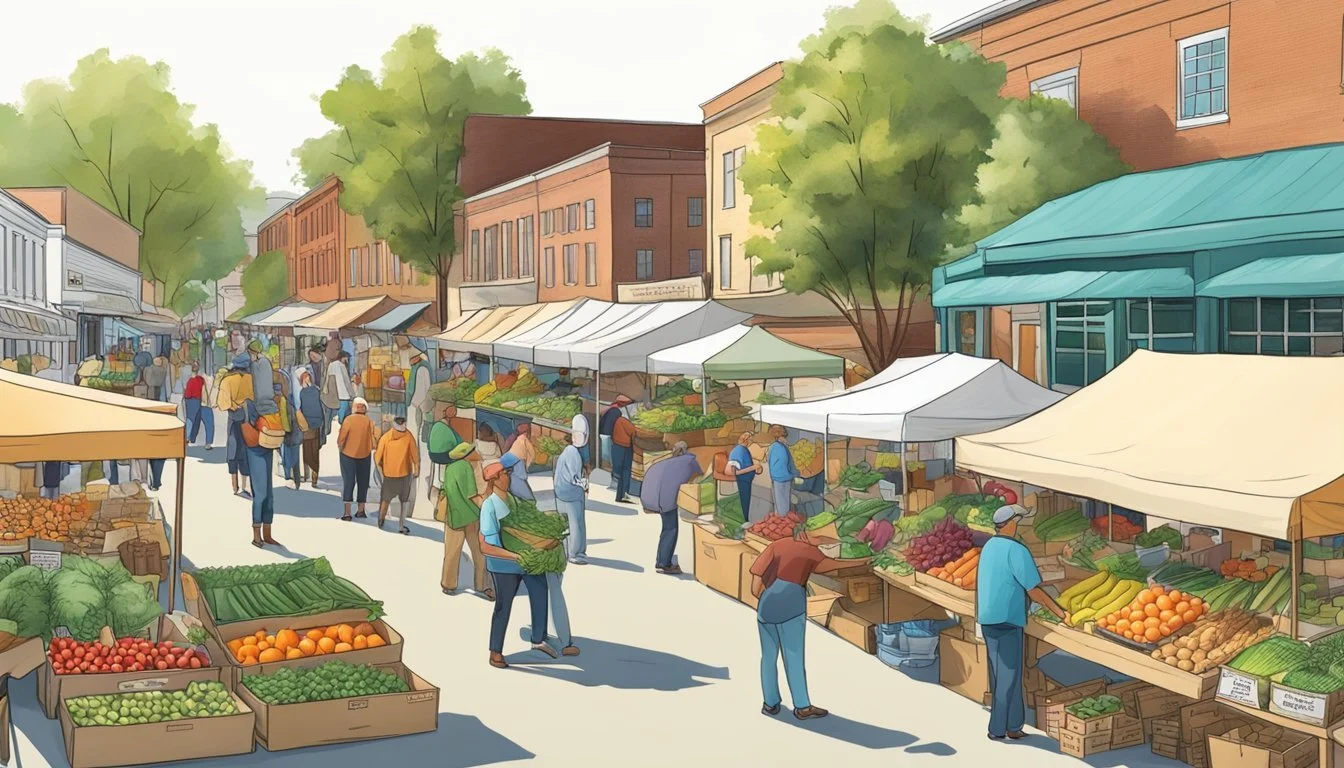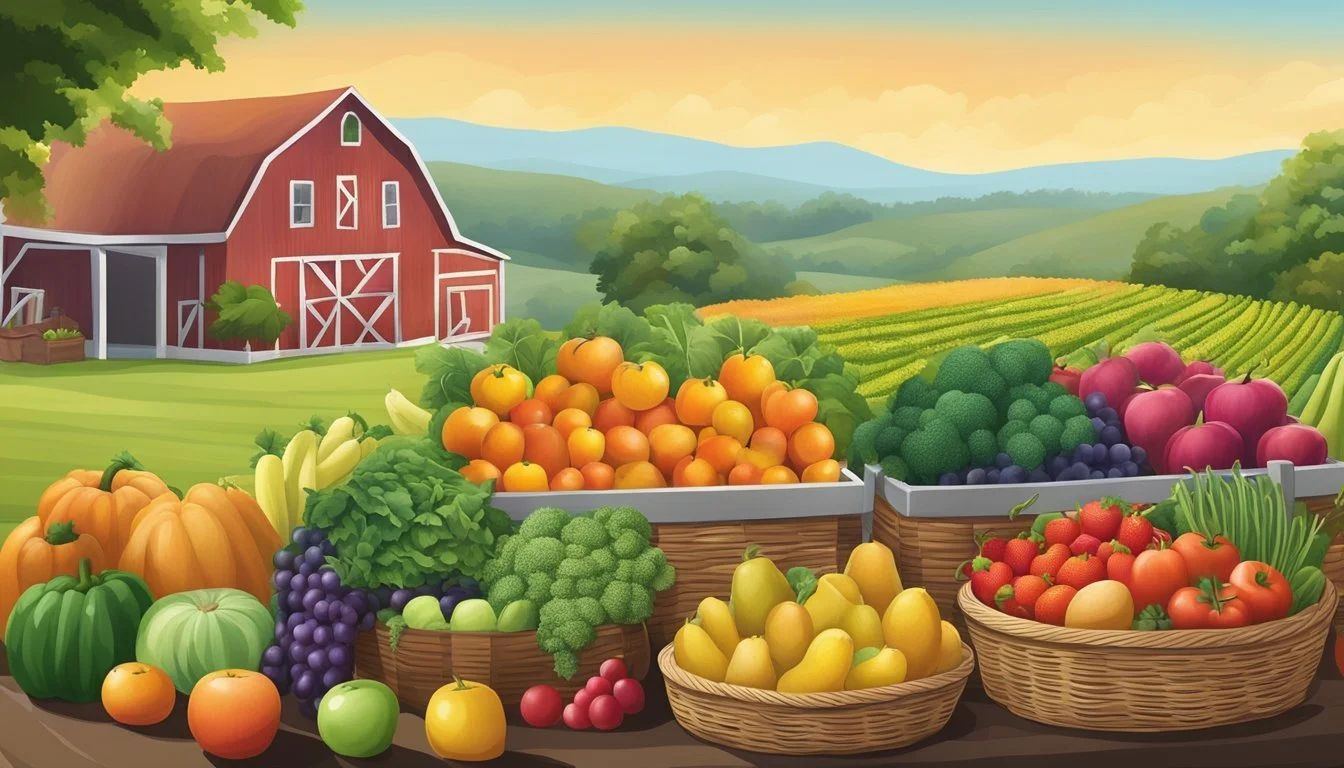Community Supported Agriculture (CSA) in Newport News, VA
A Guide to Local Farm Partnerships
Community Supported Agriculture, or CSA, has taken root in Newport News, offering residents a way to purchase fresh, local produce directly from farmers. CSA programs are a subscription-like model where consumers buy a share of the harvest in advance, providing them with a regular supply of seasonal vegetables, fruits, meat, and other farm products. This model benefits both the farmer, who gains financial support at the start of the season, and the consumer, who enjoys high-quality, locally-grown food.
In Newport News and the surrounding areas, various CSA options connect the community to the agricultural riches of Virginia. Consumers can choose from numerous farms such as Franchesca's Dawn Farm, which is known for its diverse offering, or Skipper Farms that boasts a selection of naturally grown produce. These CSAs often extend beyond the boundaries of Newport News, with distribution points in nearby cities, reinforcing the strength of Virginia's local food system.
By participating in a CSA, individuals in Newport News not only ensure their tables are laden with fresh produce but also contribute to the sustainability of local agriculture. The commitment to seasonal eating can challenge community members to embrace new foods and preservation methods, thus paving the way for a more resilient and food-secure region.
Understanding CSA
Community Supported Agriculture (CSA) represents a partnership between local consumers and producers, emphasizing a shared commitment to sustainable food systems. This section unpacks the foundational principles of CSAs and traces their evolution over time.
The Concept of Community Supported Agriculture
Community Supported Agriculture (CSA) is a model in which individuals purchase a "share" or a "membership" in a farm's harvest in advance. This economic arrangement benefits both the producer and the consumer in several ways:
Producers receive upfront capital to support their operations at the start of the growing season.
Consumers get regular distributions of fresh, locally grown or raised food products during the harvest season.
CSAs have adapted to the modern age, with members typically buying subscriptions through online platforms, facilitating broader access to fresh produce from local farms. These subscriptions can range from seasonal to year-round and often come in various sizes to accommodate different household needs.
History and Evolution of CSAs
The CSA model originated in Japan in the 1960s, coined as "teikei" – meaning "cooperation" or "partnership." However, the first official CSA farm in the U.S. began in 1986 at Robyn Van En's Indian Line Farm in Massachusetts. Over time, the number of CSAs has grown considerably; as of 2020, the USDA reported 7,244 farms utilizing the CSA model in the United States.
Throughout their history, CSAs have often been associated with traditional farming practices, yet many have evolved significantly, entering the 21st century with innovations such as online member portals and offerings that go beyond produce to include meats, dairy, and artisanal goods. This evolution reflects both a growing consumer preference for local, sustainable food and the adaptability of the CSA model to meet market demands while still upholding its core values of community support and environmental responsibility.
CSA Models and Practices
Community Supported Agriculture in Newport News, VA, thrives through a range of models and practices that cater to both farmers and consumers. These models and practices are designed to provide fresh, local produce while supporting sustainable farming techniques.
Different CSA Structures
Newport News offers various CSA structures that allow consumers to invest in local agriculture. A standard practice involves a subscription model where members pay in advance for a season's worth of produce. This payment helps cover the upfront costs of seed and equipment. In return, members typically receive a weekly or bi-weekly share of the harvest, which can include a variety of vegetables, fruits, eggs, flowers, and sometimes berries.
Some CSAs operate on a flexible pick-up model, which permits members to choose their produce directly from partnered farmers' markets or designated pick-up locations. This model often encourages direct partnerships between local farmers and consumers and strengthens the concept of direct marketing.
Organic and Sustainable Farming Methods
The farms involved with CSAs in Newport News are often dedicated to organic and sustainable farming methods. These techniques may include crop rotation, the use of organic seed, and avoiding synthetic pesticides and fertilizers, thereby contributing to environmental health and producing nutrient-rich foods. By adhering to these methods, CSA farms not only provide vegetables and fruit that are safe and healthy but also sustain the long-term fertility of the soil.
What CSA Members Receive
CSA members can expect to receive a diverse array of farm produce. Shares vary seasonally but are commonly comprised of:
Vegetables: leafy greens, root crops, and cruciferous varieties
Fruit: commonly apples, pears, and stone fruits
Eggs: often from free-range chickens
Herbs and Flowers: for both culinary and aesthetic use
Berries: such as strawberries, raspberries, or blueberries when in season
The produce is distributed weekly or bi-weekly, and the contents of each share depend on the time of year and the farm's current harvest. Through their subscriptions, members not only receive fresh food but also engage directly with the rhythm of farming seasons and practices.
Local CSAs in Newport News, VA
In the heart of Virginia, Newport News offers robust options for those seeking fresh, organic, and locally-sourced produce through Community Supported Agriculture (CSA) programs. These programs foster direct-to-consumer relationships, ensuring that residents have access to sustainable and locally-cultivated produce.
Mattawoman Creek Farms
Located on the Eastern Shore in Eastville, Mattawoman Creek Farms stands out among local farms offering an assortment of organic vegetables and fruits. Their CSA program allows residents of Newport News to benefit from a seasonal selection of their harvest, emphasizing a commitment to sustainable farming practices.
Location: Eastville, VA
Type of Products: Organic Vegetables and Fruits
Distribution: Seasonal Selection
Dayspring Farm
Dayspring Farm, situated in Cologne, Virginia, represents another notable local farm providing CSAs to Newport News. Dayspring operates with sustainability at its core, offering shares that include a variety of crops grown without synthetic pesticides or fertilizers, thus supporting both the environment and community health.
Location: Cologne, VA
Type of Products: Sustainably Grown Crops
Distribution: Diverse and seasonal selection without synthetic chemicals
Benefits of Joining a CSA
Joining a Community Supported Agriculture (CSA) program in Newport News, VA, offers tangible advantages for members, ranging from enhanced food quality to environmental benefits.
Supporting Local Farmers and Economy
Community supported agriculture directly bolsters local farms and the regional economy by providing farmers with a dependable income stream. Members who join a CSA commit to purchasing a share of the harvest, which funds the farmers in advance, allowing them to plan and cover the initial costs of the season without relying heavily on loans. This direct marketing model ensures that more of the consumer's dollar goes straight to the producers instead of being diluted through the supply chain.
Health and Nutritional Advantages
Members of a CSA enjoy a variety of vegetables, often including heirloom species not typically found in supermarkets, leading to a more diverse diet. Consuming fresh and predominantly organic produce also increases the intake of essential vitamins and minerals for members. Moreover, because the food is grown locally, it doesn't need long transportation, which means it's fresher and potentially retains more nutrients upon consumption.
Environmental Impact
Community supported agriculture promotes sustainable farming practices that contribute to environmental resilience. CSAs often utilize organic or low-impact farming methods, which can reduce the dependency on synthetic pesticides and fertilizers, mitigating soil and water pollution. Additionally, by fostering local demand for crops and reducing the need for long-distance food transportation, CSAs help lower carbon emissions, bolstering both local ecological health and the broader fight against climate change.
Challenges and Considerations
Community Supported Agriculture (CSA) in Newport News, VA faces distinct challenges that impact both producers and consumers. Addressing these considerations is critical for the resilience of the CSA model in the region.
Understanding the Risks
In a CSA model, members subscribe to the promise of fresh produce during the growing season but must also share the inherent risks of agriculture. These risks include adverse weather conditions that may hinder seed germination, impact the health of the plants, and consequently, the quantity and quality of the harvest. CSA members in Newport News, VA, must be informed and prepared for the possibility of fluctuations in their subscription deliveries, as weather patterns cannot be entirely predicted or controlled.
Seasonal Variations and Availability
Newport News CSA's relevance is grounded in the locality's distinct growing season, determining what and when a variety of vegetables can be cultivated. For example, summer's surplus might include:
Tomatoes
Zucchinis
Bell peppers
Whereas fall might offer:
Squashes
Greens
This natural ebb and flow demand that members adjust expectations in terms of produce availability, with some seasons offering a bounty and others requiring patience and understanding as availability varies. CSA providers must plan diligently to ensure a diverse selection throughout the seasons while educating their members about the natural cycle of produce availability.
Engagement and Education
In Newport News, VA, Community Supported Agriculture (CSA) programs actively engage with the community and local educational institutions to foster a sustainable and informed food culture.
Community and School Partnerships
CSA initiatives in Newport News have established collaborative efforts with local schools to provide students with hands-on agricultural education. These partnerships often involve activities such as farm visits, where students can learn about the cultivation process, sustainable farming techniques, and the importance of fresh, local produce.
Farm to School Programs: CSA farms partner with schools to integrate agricultural science into the curriculum and promote healthy eating.
Educational Workshops: Regular workshops are held to teach students about various aspects of farming and food production.
Volunteer Opportunities and Events
CSA farms offer numerous volunteer opportunities for community members to gain firsthand experience in farm operations. This not only supports the farms but also educates volunteers on the significance of CSA in maintaining food sovereignty and local agriculture.
Harvest Days: Community members can participate in the harvest, learning directly about the seasonality of crops and sustainable farming practices.
Seasonal Events: CSAs host events such as planting festivals and crop-specific celebrations, which encourage community participation and education on CSA's role in supporting local farmers and food systems.
Directions for Future Research
Exploring advancements in Community Supported Agriculture (CSA) necessitates dedicated research efforts to understand and document its impacts and developments. Focused studies can pave the way for informed decisions and innovative models in the CSA landscape.
Case Studies and CSA Models
Research on CSA in Newport News, Virginia, can benefit greatly from an influx of case studies examining current CSA models. Investigators should catalog successful CSA practices—particularly those tailored to the Central Coast—to discern patterns and inform best practices. Collaboration with the USDA to study the economic and social impacts of these models on both farmers and community members can provide depth to existing literature. Case studies serve as instrumental tools in predicting the scalability and adaptability of CSA models in different contexts.
Data Collection and CSA Database
There is a clear need for systematic data collection across CSA programs to better understand their reach and efficacy. Researchers are encouraged to work on creating a comprehensive CSA database that includes but is not limited to:
Membership numbers
Types and diversity of produce
Farmer and consumer satisfaction rates
Data should be gathered in a manner that allows for cross-comparison between CSA programs, helping to identify trends and areas of improvement. This database will also offer valuable insights to the USDA and local governments about how CSAs can contribute to food security and community development. The establishment of such a database would be a significant step towards enhancing the strategic growth of CSAs within the agricultural sector.
Conclusion
Community Supported Agriculture (CSA) represents a sustainable approach to farming in Newport News, VA, fostering a relationship between local farms and community members. This direct-to-consumer model offers numerous benefits, such as enhanced freshness of produce, economic support for local farmers, and a reduction of carbon footprint associated with food transport.
Members opt for seasonal memberships which, in turn, provide them with regular shares of the harvest. This arrangement guarantees farmers a stable income and helps them manage the uncertainties of agricultural production. By participating in a CSA, members actively contribute to the success of local farms and the integrity of the food system.
CSA models in Newport News have adapted to consumer needs and preferences, which has led to diverse offerings beyond traditional produce, including meats and artisan products. These innovative practices illustrate the adaptability and resilience of CSA models in changing market environments.
In summary, CSA in Newport News is a testament to the power of community engagement in supporting sustainable farming practices. It enforces the bond between land and table, ensuring that the environmental, economic, and nutritional benefits are shared among all participants.

